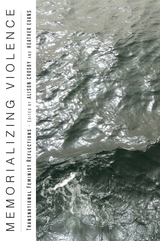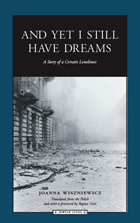
The book provides a connection to seldom discussed aspects of the Holocaust: the gulf between rich and poor Jews and how this translated into everyday survival; the refusal by Alex to see himself or Jews in general as heroes or victims; his own self-absorption as a teen in the ghetto; and his "priviliged" family's near-indifference to the suffering of those around them. Alex paints a picture of complex and diverse Jewish society in prewar Poland, revealing how, many years later and despite his determine to leave it in the past, the burdens of memory--and the dreams--linger.
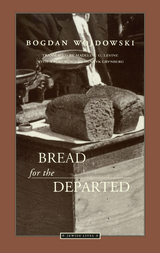
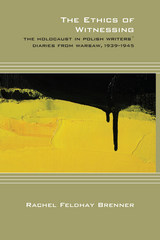
Winner, 2015 USC Book Award in Literary and Cultural Studies, for outstanding monograph published on Russia, Eastern Europe or Eurasia in the fields of literary and cultural studies
The Ethics of Witnessing investigates the reactions of five important Polish diaristswriters—Jaroslaw Iwaszkiewicz, Maria Dabrowska, Aurelia Wylezynska, Zofia Nalkowska, and Stanislaw Rembek—during the period when the Nazis persecuted and murdered Warsaw’s Jewish population. The responses to the Holocaust of these prominent prewar authors extended from insistence on empathic interaction with victims to resentful detachment from Jewish suffering. Whereas some defied the dehumanization of the Jews and endeavored to maintain intersubjective relationships with the victims they attempted to rescue, others selfdeceptively evaded the Jewish plight. The Ethics of Witnessing examines the extent to which ideologies of humanism and nationalism informed the diarists’ perceptions, proposing that the reality of the Final Solution exposed the limits of both orientations and ultimately destroyed the ethical landscape shaped by the Enlightenment tradition, which promised the equality and fellowship of all human beings.

So much Holocaust-era writing was destroyed, and for the most part, we have no way of knowing what was lost along with the very lives of authors. Most of the texts discussed in this book were buried in biscuit tins or milk cans in the Warsaw ghetto’s Oyneg Shabes Archive, the massive archival project that documented Jewish life in Poland under German occupation. Making and Unmaking Literature in the Warsaw, Lodz, and Vilna Ghettos shows that we cannot take the survival of such works for granted. It also demonstrates that literature was not an aesthetic offshoot of life within Nazi ghettos, but an intrinsic part of it, both in the reading and writing habits of starving inhabitants and in the ways that literature shaped the perception and reception of their realities.
Rose delves into work written from within Nazi ghettoes. While historiographical approaches to Holocaust studies presuppose a neat distinction between reportage, on the one hand, and the vagaries of literature, on the other, Sven-Erik Rose shows that it is misguided to privilege the least literary modes of discourse as closer to the brute reality of these catastrophic events. Literature, he argues, was one of the key frameworks victims used to comprehend their traumatic and ever-changing circumstances.
Touching on poetry, short prose, novels, and autobiography by Leyb Goldin, Itzhak Katzenelson, Shmuel Marvil, Yehoshue Perle, Zelman Skalov, and others, Rose explores how the distinction between documentary and literary writing has failed to recognize the ways literature was built into everyday life in the ghettos. The book also takes up Theodor Adorno’s famous—and widely misread—statement that writing poetry after Auschwitz is impossible. Rose argues that this dictum has led scholars to neglect poetry written during the Holocaust—even though the use of literary genres raised important questions about what it meant to narrate the catastrophic events of ghetto life.
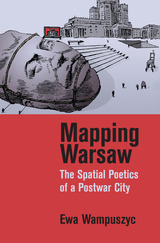
Juxtaposing close readings of photo books, socialist-era newsreels called the Polska Kronika Filmowa, the comedies of Leonard Buczkowski and Jan Fethke, the writing and films of Tadeusz Konwicki, and a case study on the Palace of Culture and Science—a "gift" from none other than Stalin—this study investigates the rhetorical and visual, rather than physical, reconstruction of Warsaw in various medias and genres.
Ewa Wampuszyc roots her analysis in the historical context of the postwar decade and shows how and why Poland's capital became an essential part of a propaganda program inspired by communist ideology and the needs of a newly established socialist People's Republic. Mapping Warsaw demonstrates how physical space manifests itself in culture, and how culture, history, and politics leave an indelible mark on places. It points out ways in which we take for granted our perception of space and the meanings we assign to it.
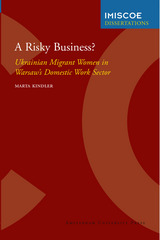
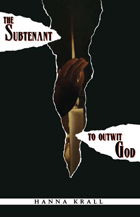
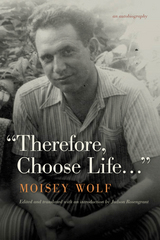
Wolf describes his Jewish childhood and youth in pre-war Poland, his escape from the Holocaust and subsequent medical service in the Soviet Army during World War II and the following decade, his distinguished career in psychiatry in post-Stalinist Soviet Russia, and his final years in Portland, Oregon, after his departure from the Soviet Union in 1992.
Wolf’s narrative skill and evocative personal insights, combined with Judson Rosengrant’s judicious editing and annotation and elegant translation, provide the reader with direct access to a world that has seemingly ceased to exist, yet continues to resonate and inform our own lives in powerful ways.
“Therefore, Choose Life…” will appeal to readers interested in the history of the East-European twentieth century, pre-Holocaust Jewish family life in Poland, and in the survival of a man of deep religious faith and cultivation in the face of the catastrophes and vicissitudes of his time and place.
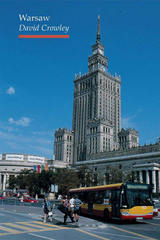
Avoiding the predictable pathways of conventional architectural and urban history writing, David Crowley reveals Warsaw’s visual and urban cultural history through narrative and anecdote, telling stories of the everyday, albeit in extraordinary circumstances. Warsaw examines the ways in which the fabric of the city has been shaped by Communist ideology since the late 1940s, and shows how the city has been spectacularly transformed since the introduction of a market economy in 1989. It also reflects on the ways in which the citizens of Warsaw use and enrich their living areas and the city they inhabit. In Warsaw, the past runs deep, and buildings are marked by myths and curses. David Crowley acts as our guide through this scarred yet uplifting terrain.
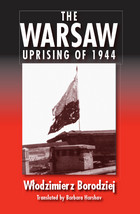
The Warsaw Uprising of 1944 dramatically tells the largely unknown story of the Warsaw resistance movement during World War II. Desperate to free themselves from German military oppression but also hoping to show the advancing Soviets that they could not impose easy rule upon the citizens of Warsaw, the Poles launched an almost hopeless attack against the Germans on August 1, 1944.
Wlodzimierz Borodziej presents an evenhanded account of what is commonly considered the darkest chapter in Polish history during World War II. In only sixty-three days, the Germans razed Warsaw to the ground and 200,000 people, mostly civilians, lost their lives. The result—a heroic and historically pivotal turning point—meant that the Poles would lose both their capital and an entire generation. This concise account of the trauma—little known to English-speaking readers—will appeal to anyone interested in the history of World War II in general and is a must-read for students of Polish history in particular.READERS
Browse our collection.
PUBLISHERS
See BiblioVault's publisher services.
STUDENT SERVICES
Files for college accessibility offices.
UChicago Accessibility Resources
home | accessibility | search | about | contact us
BiblioVault ® 2001 - 2025
The University of Chicago Press


